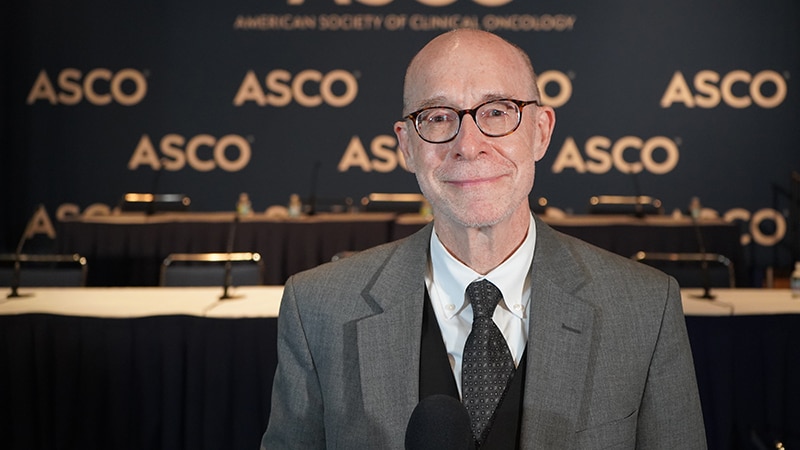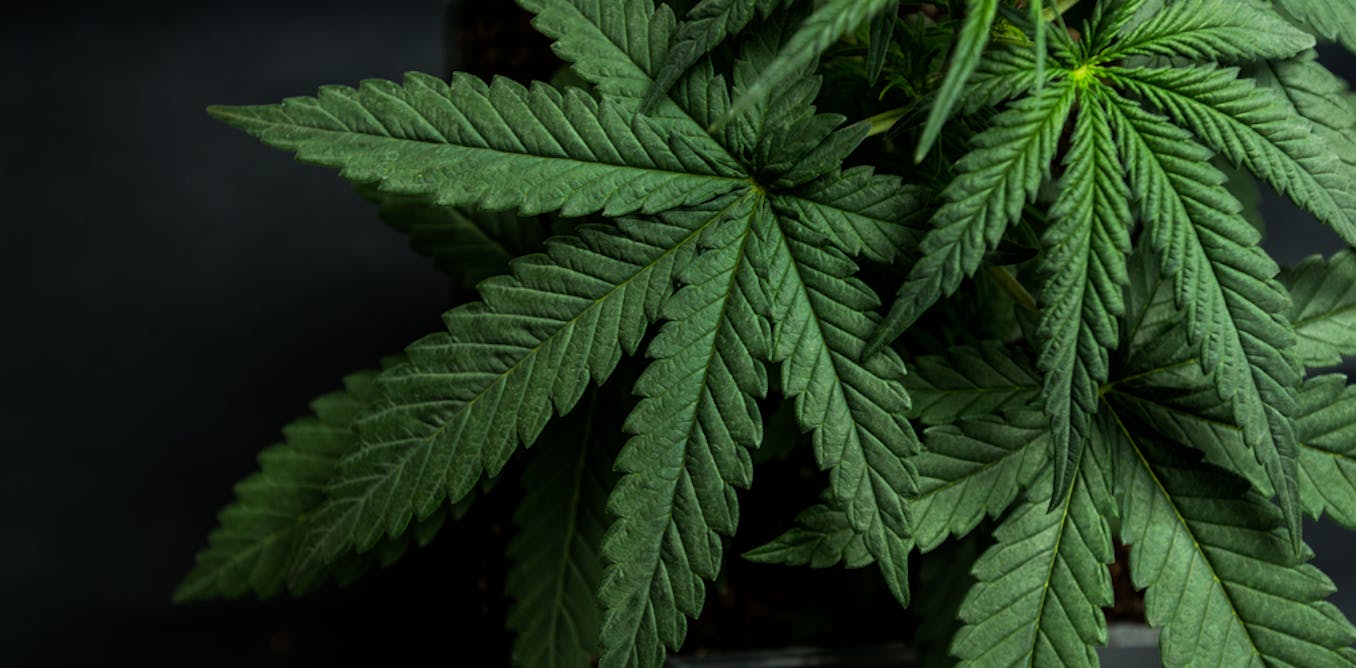Dr. Eugene Ahn, MD, Deputy Medical Director, Cancer Treatment Center of America, argues that although cannabinoids have anti-cancer properties, it is “irresponsible and harmful” to say that cannabis can cure all types of cancer because cannabinoids can activate tumor growth in some cancers.
Does Cannabis Cure Cancer
By Eugene Ahn, MD
I wish cannabis cured all cancers. I wish wishful thinking would make it true. As oncology health professionals, we are joyful when our patients are joyfully in remission, and we suffer when we see our patients suffer. If there is one thing we professionals have in common, it is that we welcome better cure probabilities and less side effects for our patients.
Over the past 18 years after having trained in both infectious diseases and oncology, I have taken care of many conditions that respond extremely well to cannabis or its psychoactive ingredient delta-9-tetrahydrocannibinol (THC), such as AIDS-related cachexia, chronic pain, nausea and loss of appetite from cancer or chemotherapy. I have also published case reports of extraordinary outcomes when they highlighted potential activity of an underappreciated intervention (for example, a case of Xeloda and graviola tea associated with a 5-year remission in a patient with metastatic breast cancer). I have a lot of patients who have utilized cannabis or its isolates in the hope it would cure their metastatic disease and assured them I would publish their case if they were successful. But I have yet to personally see a patient whose metastatic cancer went into miraculous remission with cannabis or cannabis products alone, although for most their quality of life was enhanced.
Dr. Donald Abrams, one of the earliest pioneers of cannabis research in supportive care, Professor of Clinical Medicine at University of California San Francisco and general oncologist at Zuckerberg San Francisco General Hospital, shared his clinical experience with medical cannabis in the state that first legalized it in 1996:
“As an oncologist in San Francisco for the past thirty-three years, I often say that I would venture to guess that the majority of the patients I have cared for have used cannabis during their treatment. Thus if cannabis cured cancer, I would have a lot more survivors. Granted, the plasma concentration of inhaled cannabis, as most of my patients have likely used in the past probably does not approach that which can be achieved with the highly concentrated oil preparations (no data available on this as of yet), but still, oncologists maintain that the plural of anecdote is not evidence! What saddens and disturbs me the most is when I see a patient in consultation with a potentially curable malignancy who is foregoing conventional cancer therapy in hopes that cannabis oil will be a kinder, gentler treatment. The fact remains that there is no evidence at this time to support such a decision.”
Dr. Abrams concludes, “That being said, what we do know is that cannabis is truly an amazing medicine for many cancer and treatment-related side effects — nausea, vomiting, loss of appetite, pain, depression, anxiety, insomnia.”
Dr. Abrams will be summarizing the scientific evidence of the benefits of cannabis and its isolates in an SIO webinar on Sept 13, 2018 in a way that only he can, having been on the leading edge of cannabis research in both HIV and cancer care. Not only will you learn about the science of cannabis, but also the sociopolitical challenges he navigated to research the plant’s benefits. I highly recommend signing up for this talk (link below) and it is free for SIO members and only $20 to register for non-members.
While cannabis is not a magic bullet for cancer, there is preclinical evidence in animal models and cell lines (cancer cells grown in petri dishes in the lab) to suggest cannabis might have an anti-cancer effect in humans. However, bear in mind that most drugs that perform similarly well in preclinical models turn out to not even shrink cancer or help people live longer when they are tested in definitive human trials.
To make sure the terminology in this blog is understood, allow me to run through a quick cannabis 101 review. The cannabis plant consists of primarily two species - C. sativa and C. indica - that contain more than 400 identified chemicals. For the sake of accuracy and relative simplicity, the relevant categories of its components are as follows:
Cannabinoids Non-Cannabinoids
THC Terpenoids
Cannabidiol (CBD) Flavonoids
And over 100 others
Cannabinoids are defined as chemical compounds that interact with the cannabinoid receptors, which in humans include CB1, predominantly expressed on neurons in the brain and central nervous system, and CB2 expressed in non-neuronal tissues such as immune cells. Cancer cells can express these receptors as well, and studies are mixed as to whether it can indicate a better or worse prognosis compared to cells that do not have the receptors. But the effects of cannabinoids on cancer are not limited to interaction with these receptors as several studies have documented effects that are not prevented by blocking these receptors. THC is the cannabinoid classically associated with the psychoactive and appetite-stimulating effects, although it is not exclusively so. Cannabidiol is another cannabinoid that also has been studied for anti-cancer effects and is often referred to as CBD.
The FDA has approved several drugs that we will call cannabinoid-based (i.e. they are not naturally derived but synthetic): dronabinol (Marinol and Syndros, delta-9-THC), and nabilone (Cesamet, THC-similar). As of June 25, 2018, the FDA approved Epidiolex (cannabidiol naturally derived from cannabis) for two rare and severe forms of epilepsy, marking the first time a non-synthetic cannabinoid has been approved in the United States. However, the first regulatory approval for a naturally-derived cannabis product in North America was given by Health Canada for nabiximols (Sativex) for symptomatic relief of neuropathic pain (2005) and muscle spasticity (2010) from multiple sclerosis. Nabiximols is a formulated extract of C. sativa with a THC:CBD ratio of 1:1 as well as other cannabinoid and non-cannabinoid components.
Terpenoids and flavonoids are responsible for the color and aroma of plants and also serve biological functions. Relative to cannabinoids, these two categories of chemicals are not as well researched for their effects on cancer and will be omitted for brevity except when we discuss the entourage effect at the end of this blog.
Regarding anecdotal evidence (and yes, I count anecdotal evidence as evidence, just not of very high quality if it is not reliably reproduced in others) for anti-cancer effects of cannabis, the case that is most often brought up by my patients is that of Rick Simpson. From the information that is available on the internet, Rick was diagnosed with several basal cell carcinomas of the skin (not metastatic) and based on preclinical studies decided to treat his skin cancer topically with a concentrated cannabis oil and left a bandage on the lesions for several days. The lesions disappeared. I acknowledge this is a pretty impressive result but we still don’t know if that was a placebo effect (keep in mind it is also well known duct tape can cure warts but no more so than placebo), correlation not causation (did he or those who have followed suit receive any other intervention?), and even if the oil really was the cause of the remission at best we can say the oil might be worthy of research in the treatment of basal cell carcinomas.
But to extrapolate from this case (and the preclinical evidence) that cannabis oil is a suppressed cure for all types and stages of cancer is, at best, an innocent inference (educated guess) and, at worst, a delusion that has gone viral on the internet and is endangering the lives of patients with curable cancer who might choose to take cannabis oil in lieu of conventional therapy without any scientific follow up with imaging or surgery. However, Rick Simpson’s case report does warrant further research, especially after cell line and animal model research suggests that skin cancers can have inhibited angiogenesis (blood vessel growth) mediated by CB1 and CB2 receptors (Casanova et al).
To date, we only have two prospective clinical trials where a cannabis preparation or its derivatives was tested for an anti-cancer effect. Guzman et al conducted a phase I (preliminary trial to establish safety of the new intervention) and showed that intracranial administration of THC into an aggressive brain cancer called glioblastoma multiforme had antiproliferative effects in some of the 9 patients who received it, but all patients eventually progressed and died (though not due to the THC).











